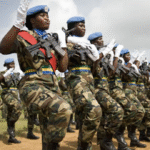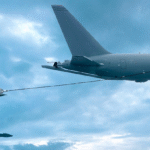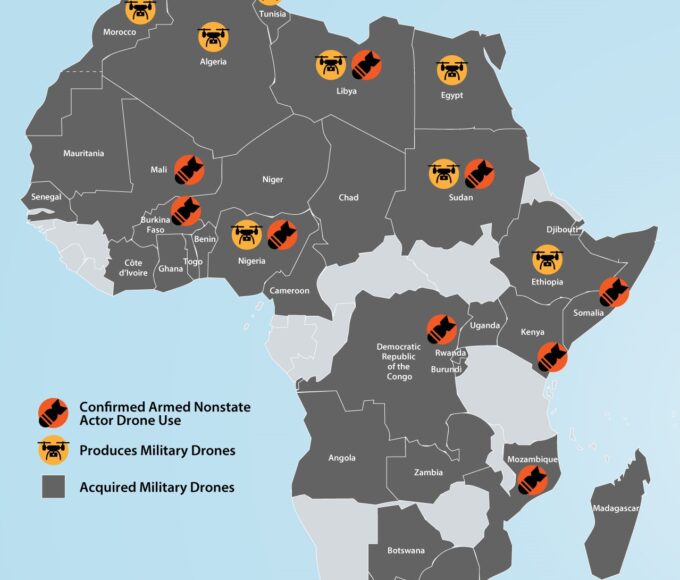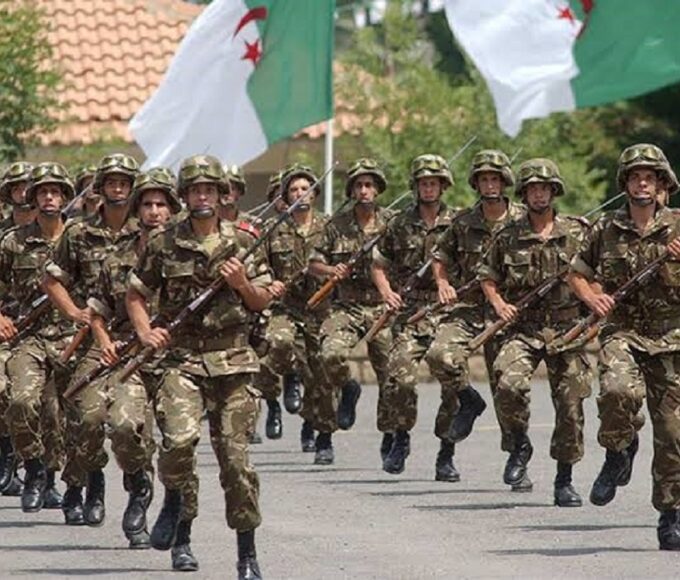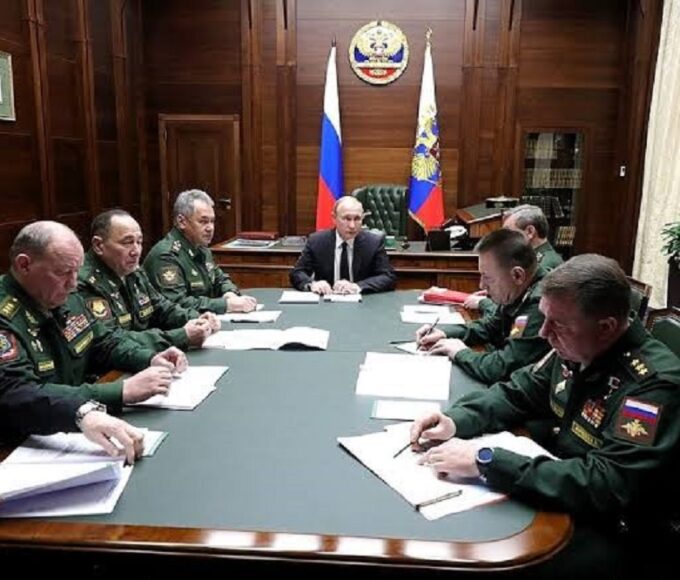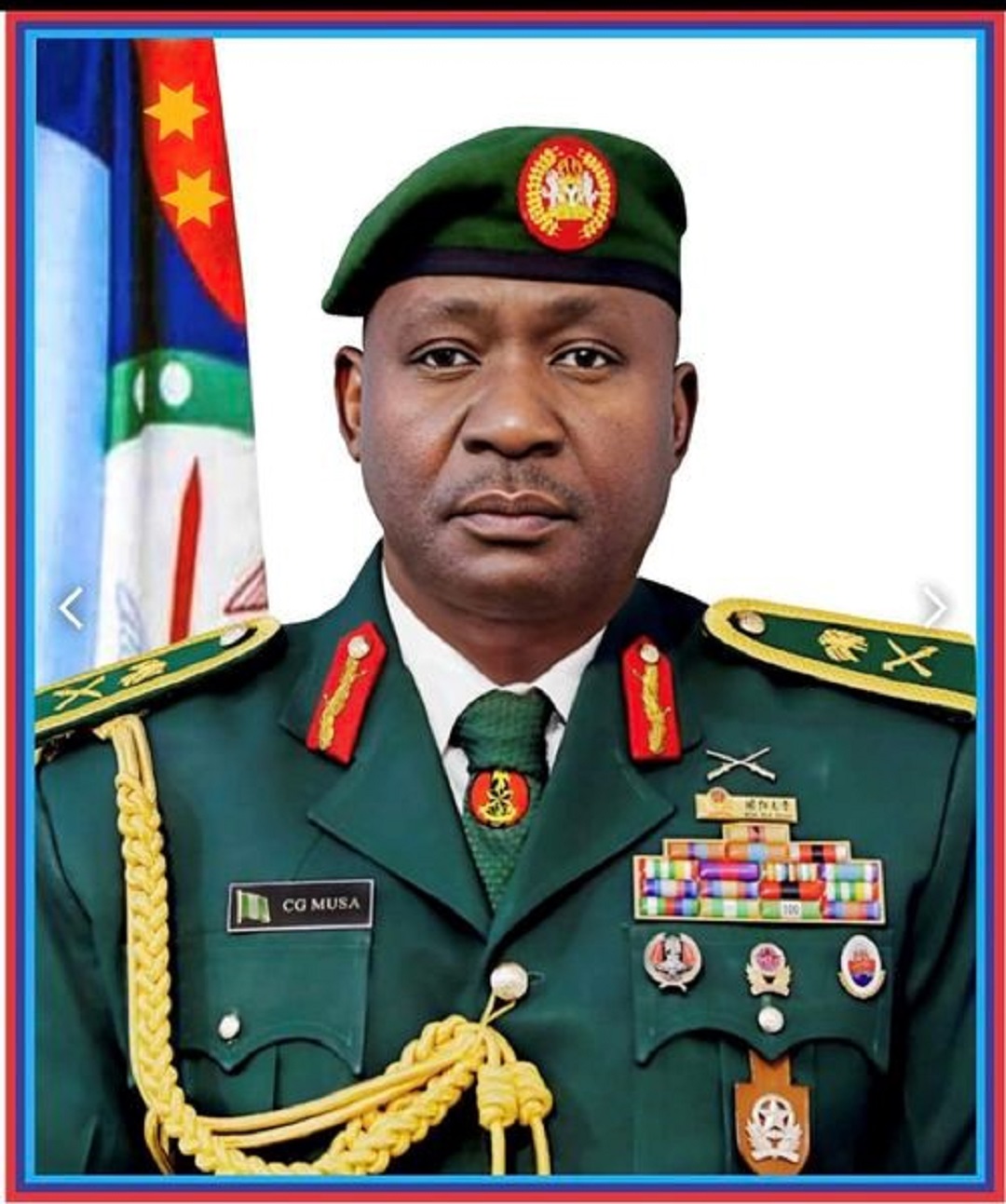
Defence Chief Reaffirms Military’s Commitment to National Unity as Civil Forums Rally Behind AFN
In a display of growing civil-military solidarity, Nigeria’s Chief of Defence Staff (CDS), General Christopher Gwabin Musa, recently, received members of the Northern Bridge Builders Forum (NBBF) on a courtesy visit at the Defence Headquarters in Abuja. The meeting marked another symbolic convergence between the military and civic leaders seeking to advance peace, security, and national cohesion.
Led by Senator Joel Danlami Ikenya, the NBBF delegation commended the Armed Forces of Nigeria (AFN) for its steady contributions toward stabilising communities and restoring public confidence in previously volatile regions. Senator Ikenya particularly praised the military’s counter-insurgency efforts, noting that “peace is gradually returning to farming communities” and that the Abuja–Kaduna highway, once notorious for abductions and violence, now “stands as a testament to the AFN’s sustained operational successes.”
Related Article: WAR WIDOWS AND FAMILIES AS SILENT STAKEHOLDERS IN DEFENSE
The Forum also took a firm stance against misinformation and unsubstantiated criticism of the military, which it described as “often propagated by uninformed individuals disconnected from the realities on the ground.” Instead, it urged citizens to recognise the sacrifices of security personnel and work collectively toward sustaining peace.
In his response, General Musa expressed appreciation for the group’s solidarity and reaffirmed the Armed Forces’ unwavering commitment to safeguarding the nation. “The AFN remains resolute in ensuring the safety and security of all Nigerians,” he declared. He lauded the NBBF for its inclusive composition — comprising politicians, academics, traditional rulers, and community advocates — describing it as “a true reflection of bridge-building across Nigeria’s diverse social fabric.”
The visit of the Northern Bridge Builders Forum underscores a growing movement across Africa where civil society groups and regional associations are stepping forward to strengthen relations with national defence institutions. Such collaborations have proven vital in demystifying the role of the military and encouraging civic support for security initiatives.
For instance, in Ghana, the National Peace Council (NPC) frequently engages with the Ghana Armed Forces to promote non-violent conflict resolution and social stability in the country’s northern regions. Similarly, in Kenya, forums such as the National Cohesion and Integration Commission (NCIC) have worked closely with the Kenya Defence Forces (KDF) to foster unity and prevent ethnic profiling during election cycles.
In Nigeria, the AFN’s open-door engagement strategy under General Musa has mirrored these continental trends. Since assuming office, the Defence Chief has consistently emphasised inclusive security frameworks, where traditional institutions, youth groups, and civic bodies become active stakeholders in national stability. The meeting with the Northern Bridge Builders Forum therefore fits into a broader vision of community-driven peacebuilding, a key component of the AFN’s post-insurgency stabilisation agenda.
Reassessing Nigeria’s National Security Architecture
Nigeria’s security challenges — from banditry in the North-West to separatist tensions in the South-East — have demanded not only military strength but also social intelligence and inter-community trust. Forums like the NBBF, which draw members from diverse socio-political backgrounds, play a crucial role in bridging these divides.
Analysts have long argued that lasting peace in Nigeria requires more than armed intervention; it demands what the late General Andrew Azazi once termed “security citizenship” — a shared responsibility between the state and its people. By engaging such civic platforms, the AFN is recalibrating its relationship with the public, moving from a posture of enforcement to one of partnership.
The Defence Headquarters’ Press Release, signed by Brigadier General Tukur Gusau, Director of Defence Information, reinforced this narrative. It stated that the AFN “will continue to work tirelessly to ensure the safety and security of all Nigerians,” and welcomed the Forum’s encouragement as a morale booster for troops on the frontlines.
Regional Lessons and the Path Ahead
Across Africa, similar civil-military engagements are reshaping national security narratives. In Ethiopia, following years of internal conflict, the National Dialogue Commission has invited defence officials to participate in reconciliation forums with community leaders. In Sierra Leone, post-war reconstruction efforts were consolidated through civic partnerships that helped rebrand the military as a protector of democracy rather than a political actor.
These developments highlight a fundamental shift in Africa’s security ecosystem — from confrontation to collaboration. The African Defence & Security Magazine (ADS) has consistently documented this evolution, noting that trust between citizens and the military is not just a matter of perception, but a strategic pillar of national resilience.
General Musa’s engagement with the Northern Bridge Builders Forum exemplifies the Defence Headquarters’ commitment to nurturing this new culture. The CDS’s acknowledgment of civilian partnerships as “patriotic acts of bridge-building” signals a forward-thinking approach — one that recognises that security is both a civic right and a civic duty.
In the coming months, analysts expect the AFN to deepen these engagements, particularly through regional dialogues that align local governance with national security objectives. For Busia in Kenya, Accra in Ghana, or Abuja in Nigeria, the lesson is the same: sustainable peace grows where the military and the people stand together.
From cyber threats to insurgency and disinformation — the synergy between civic institutions and defence forces will determine the continent’s trajectory toward peace and stability. The Northern Bridge Builders Forum’s visit, while symbolic, is a reminder that the quest for national unity remains a shared mission — one that demands integrity, empathy, and collaboration across every bridge that connects the people to their protectors.
King Richard Igimoh, Group Editor ALO
King Richard Igimoh, Group Editor African Leadership Organisation is an award-winning journalist, editor, and publisher with over two decades of expertise in political, defence, and international affairs reporting. As Group Editor of the African Leadership Organisation—publishers of African Leadership Magazine, African Defence & Security Magazine, and Africa Projects Magazine—he delivers incisive coverage that amplifies Africa’s voice in global security, policy, and leadership discourse. He provides frontline editorial coverage of high-profile international events, including the ALM Persons of the Year, the African Summit, and the African Business and Leadership Awards (ABLA) in London, as well as the International Forum for African and Caribbean Leadership (IFAL) in New York City during the United Nations General Assembly.
Recent Posts
Categories
- Air & Aerospace17
- Border Security15
- Civil Security6
- Civil Wars4
- Crisis5
- Cyber Security8
- Defense24
- Diplomacy19
- Entrepreneurship1
- Events5
- Global Security Watch6
- Industry8
- Land & Army9
- Leadership & Training5
- Military Aviation7
- Military History27
- Military Speeches1
- More1
- Naval & Maritime9
- Policies1
- Resources2
- Security12
- Special Forces2
- Systems And Technology9
- Tech6
- Uncategorized6
- UNSC1
- Veterans7
- Women in Defence9
Related Articles
BEST DEFENCE POLICY PAPERS ON AFRICA IN THE LAST DECADE
Between 2016 and 2026, defence policy thinking on Africa shifted in response...
ByKing Richard Igimoh, Group Editor ALOJanuary 26, 2026BEST DEFENCE POLICY PAPERS ON AFRICA IN THE LAST DECADE
Between 2016 and 2026, defence policy thinking on Africa shifted in response...
ByKing Richard Igimoh, Group Editor ALOJanuary 23, 2026THE ALGERIAN WAR OF INDEPENDENCE: TACTICAL LESSONS
The Algerian War of Independence (1954–1962) remains one of the most instructive...
ByKing Richard Igimoh, Group Editor ALOJanuary 22, 2026DEFENCE MINISTERS’ MEETINGS: OUTCOMES THAT MATTER
As geopolitical pressures intensified in 2025, defence ministers’ meetings shifted from routine...
ByKing Richard Igimoh, Group Editor ALOJanuary 21, 2026





